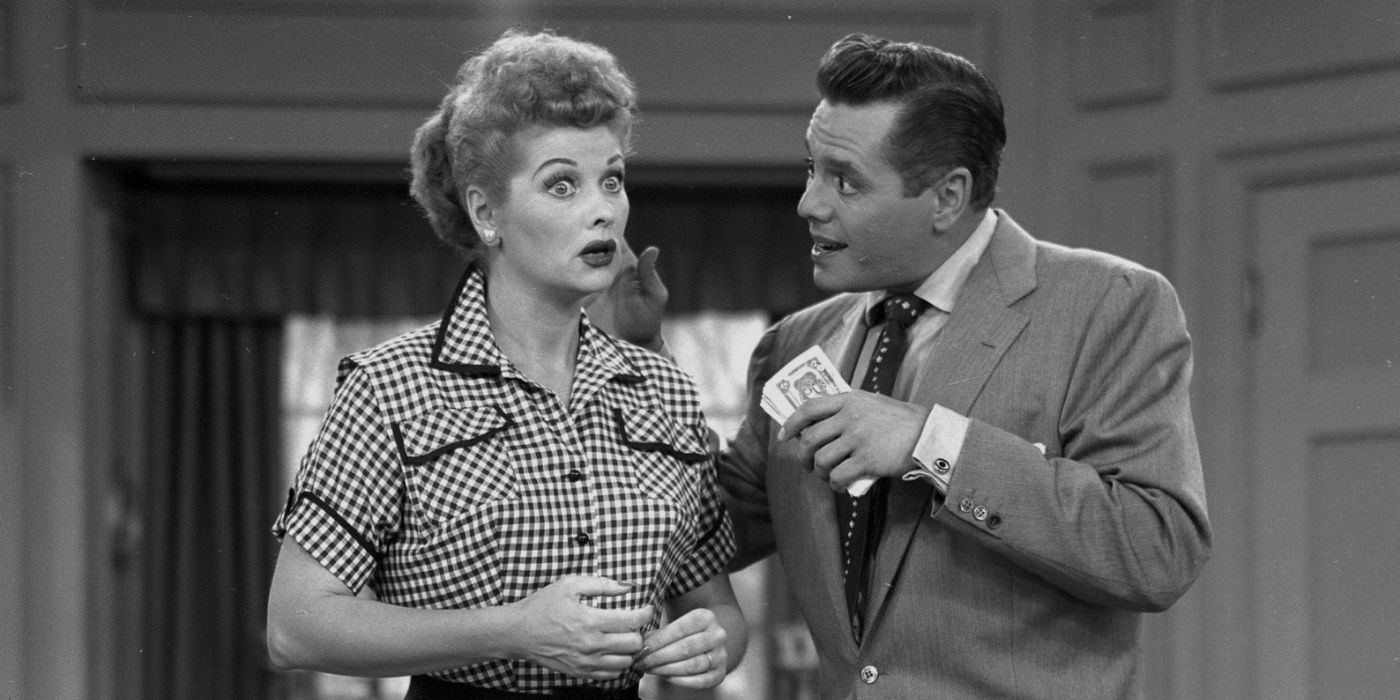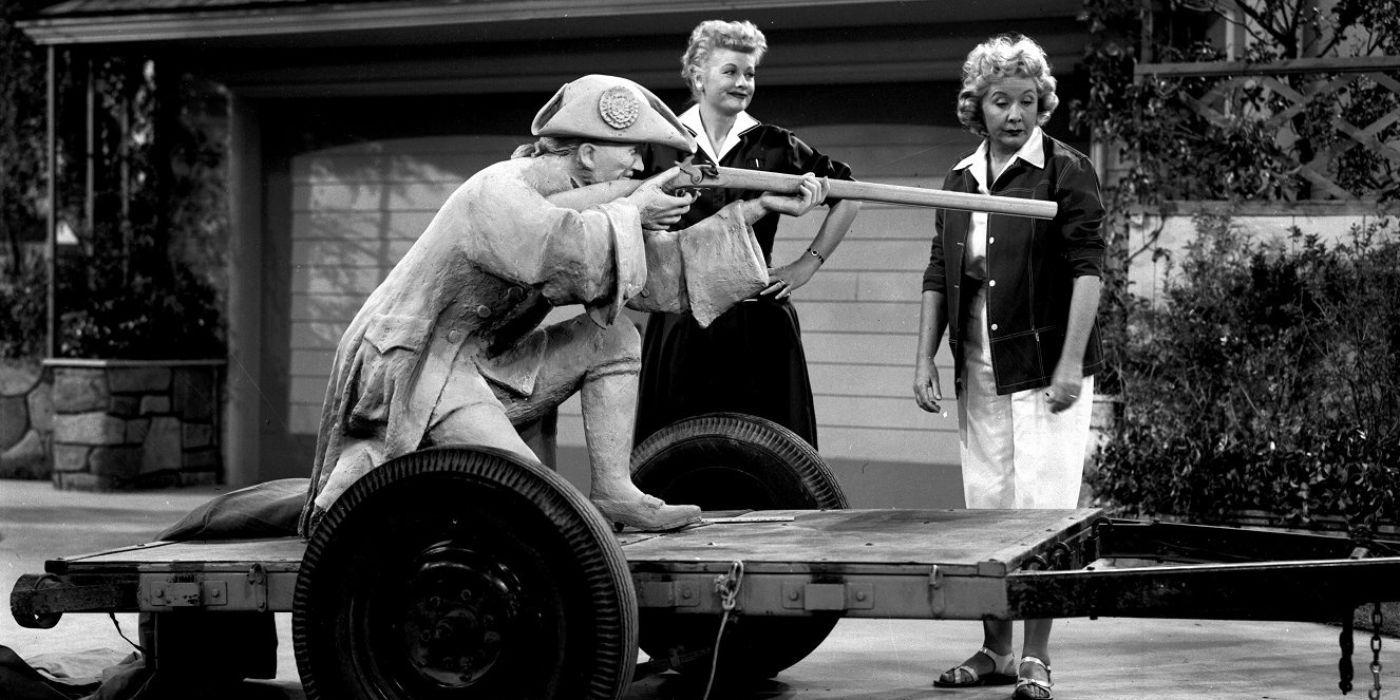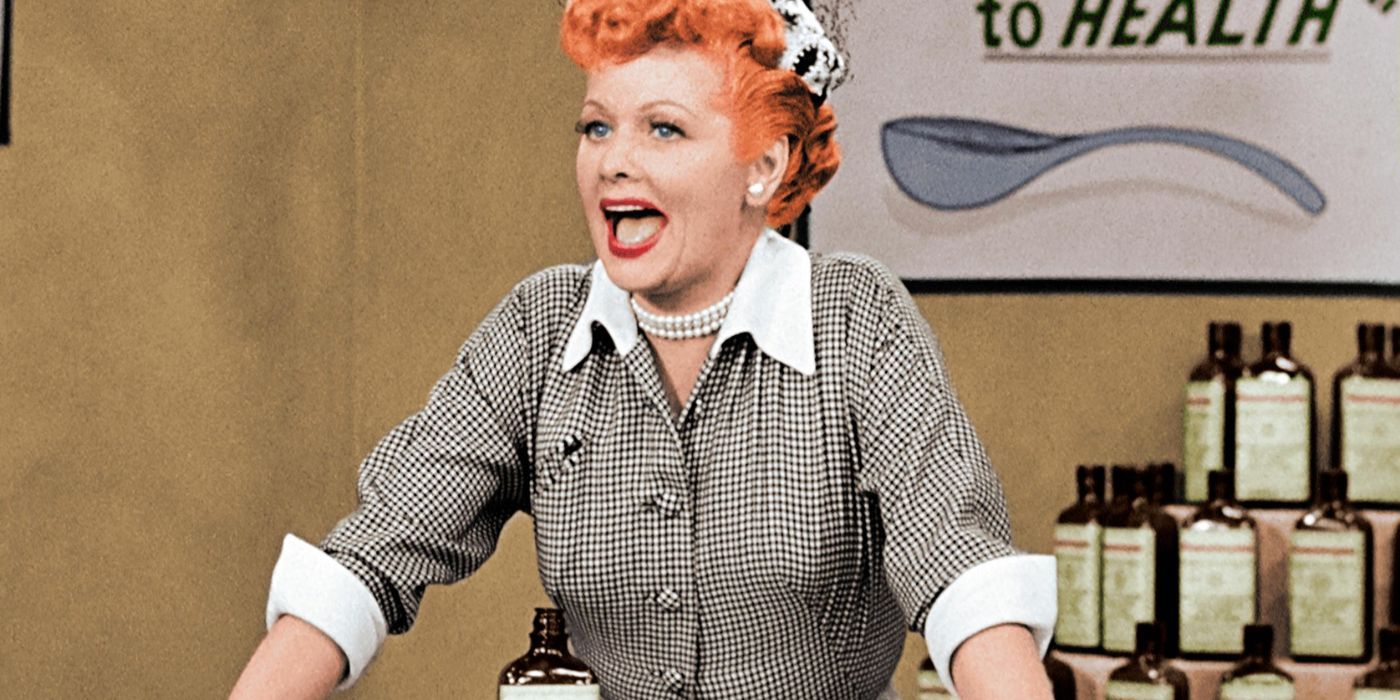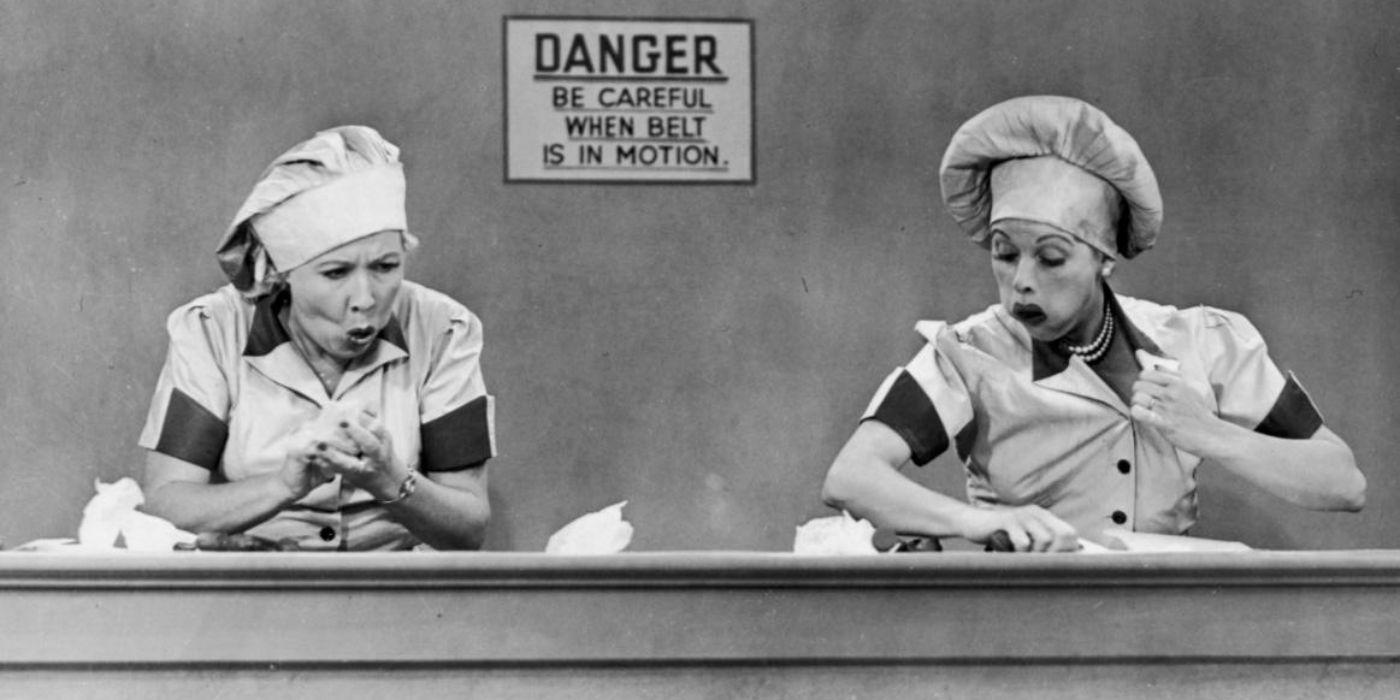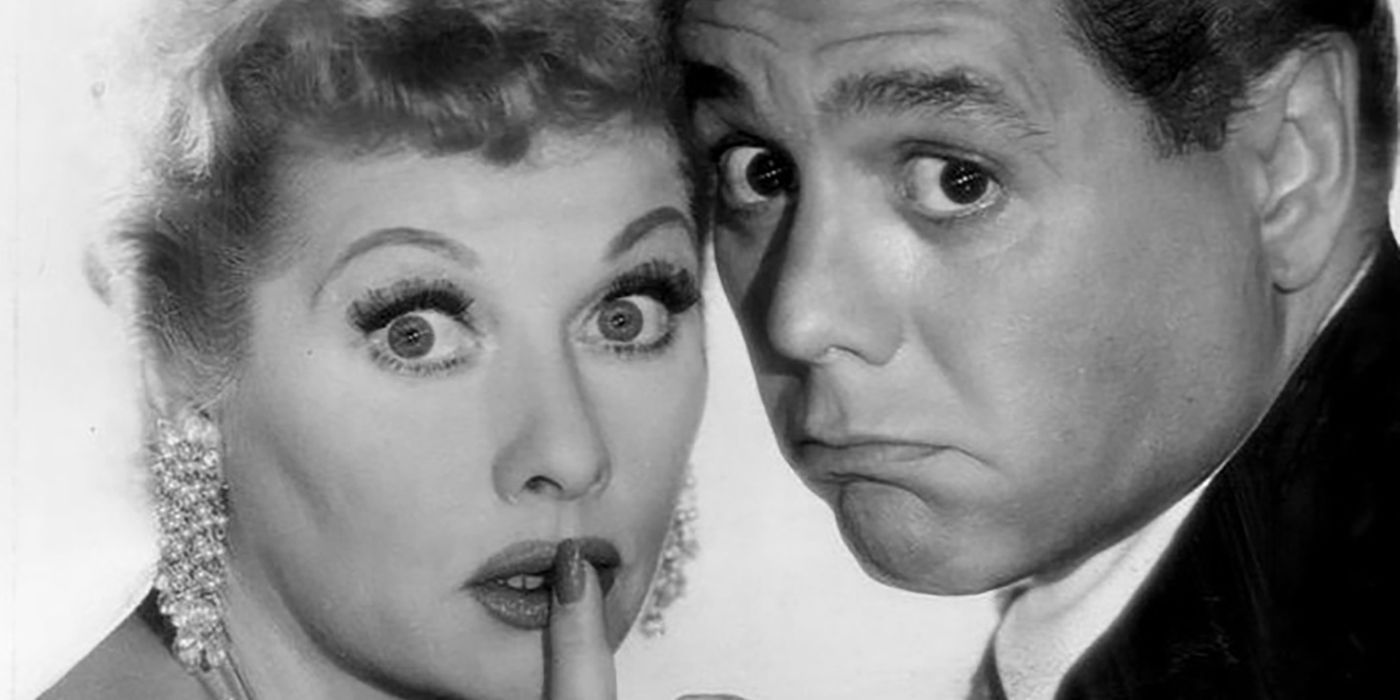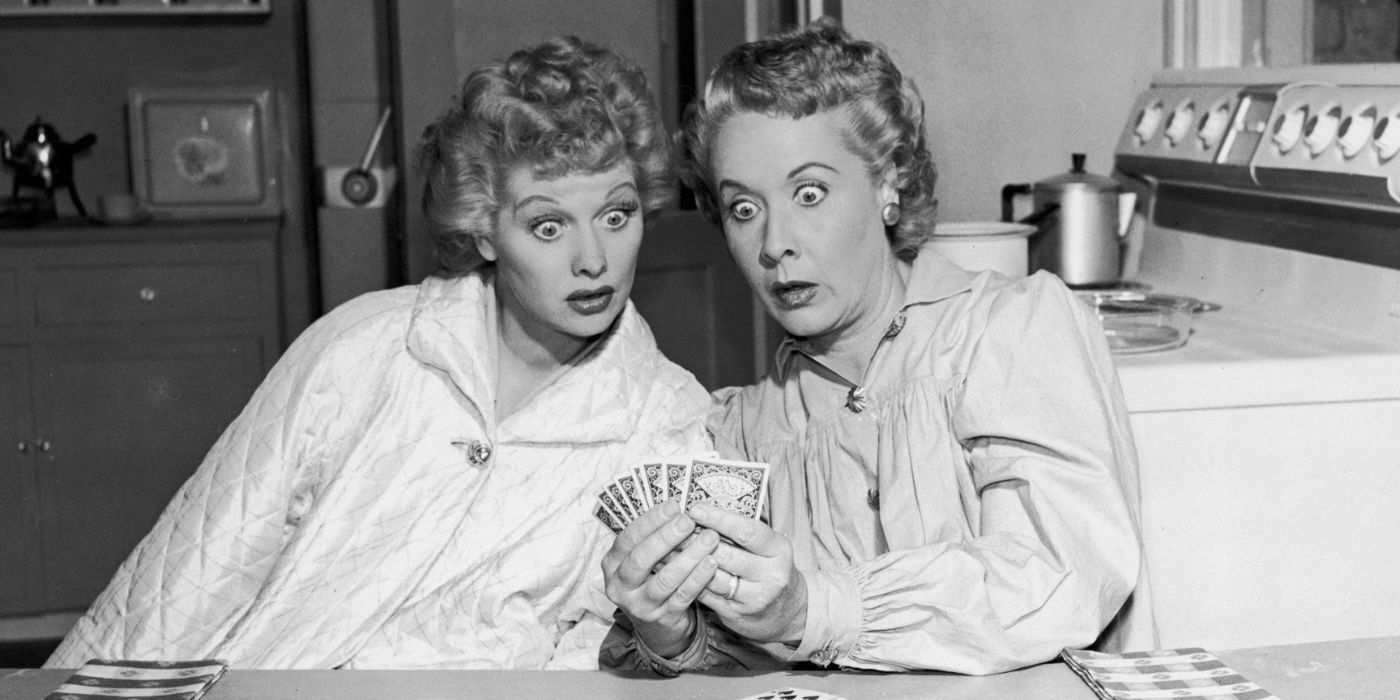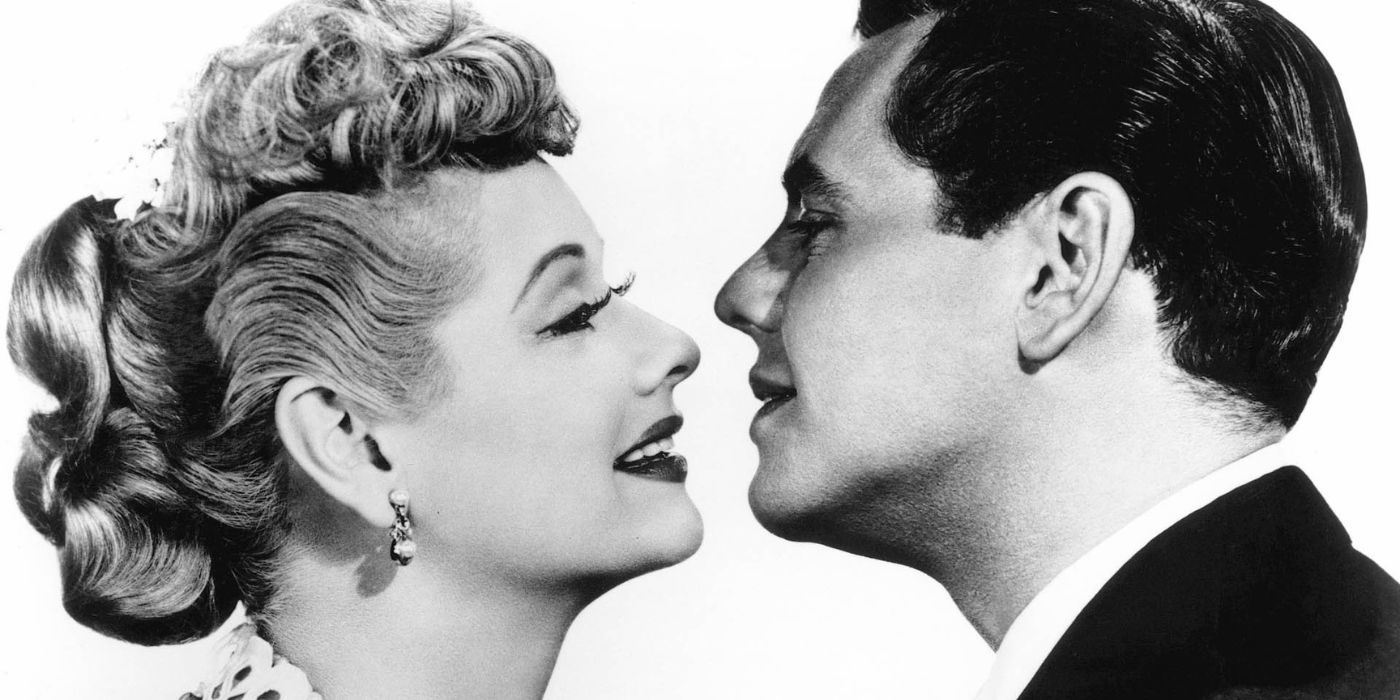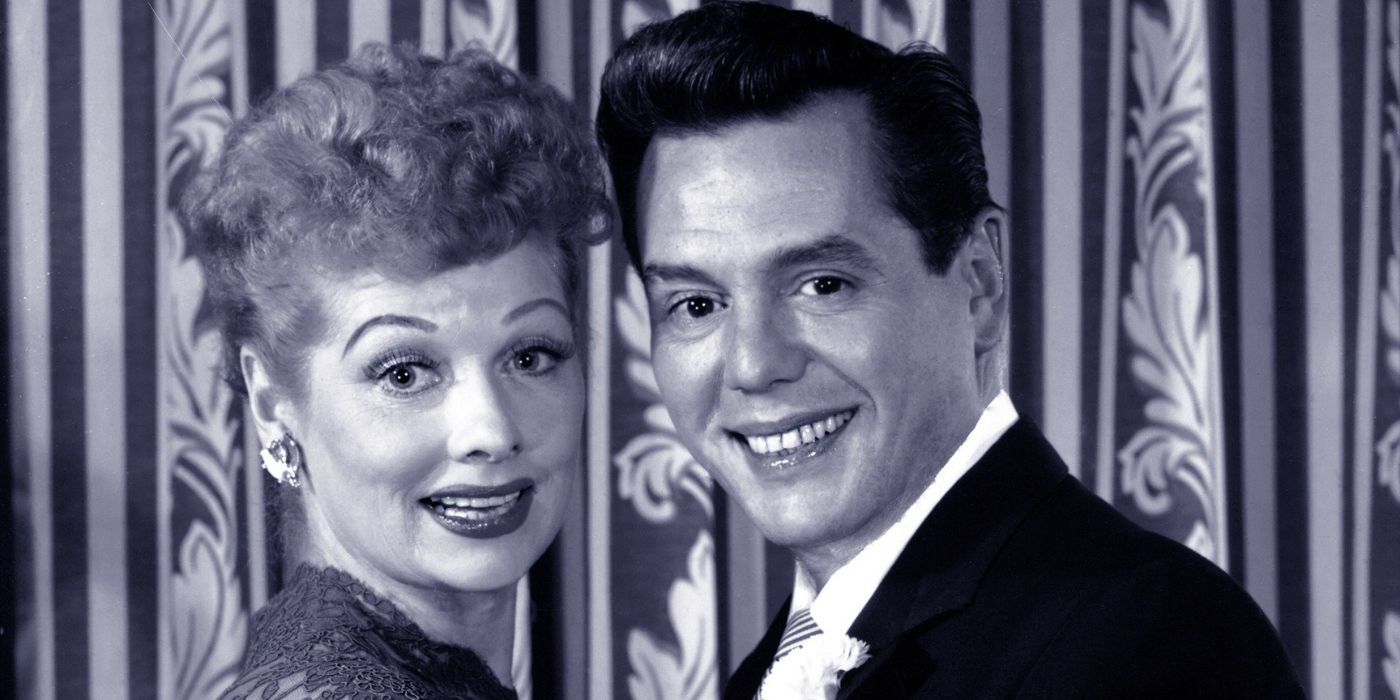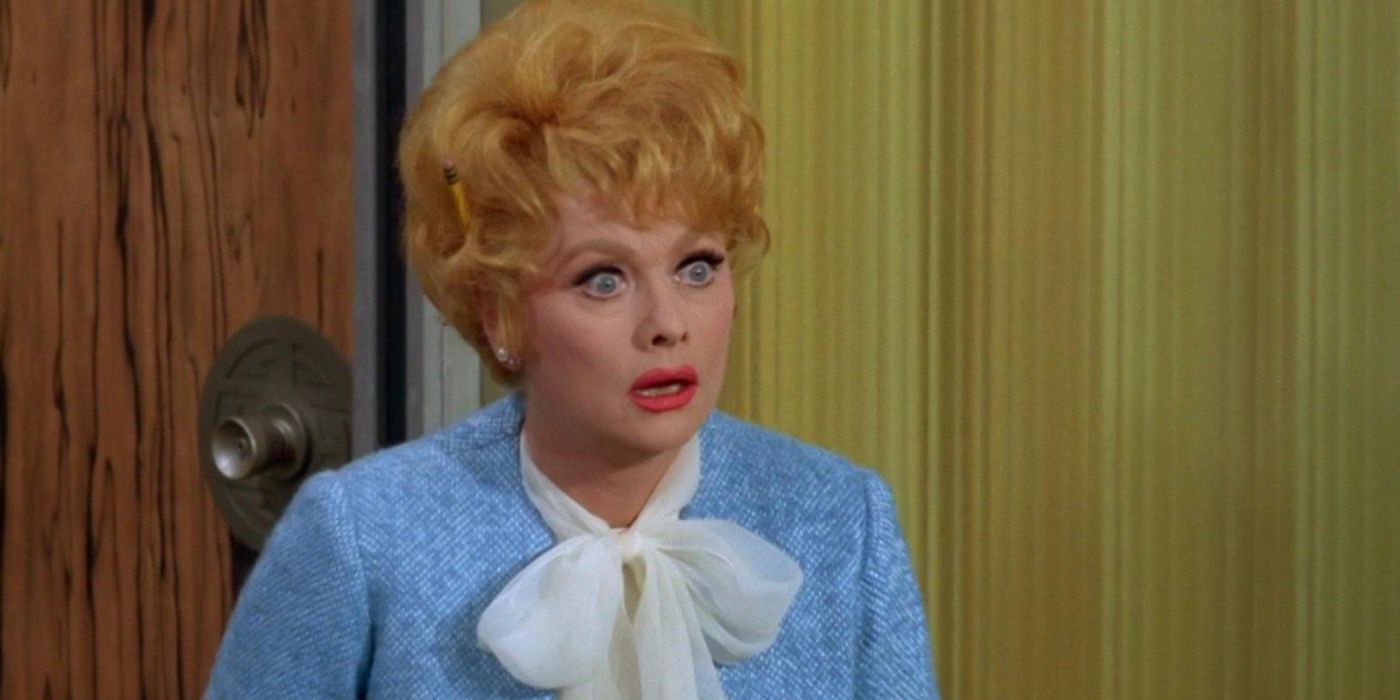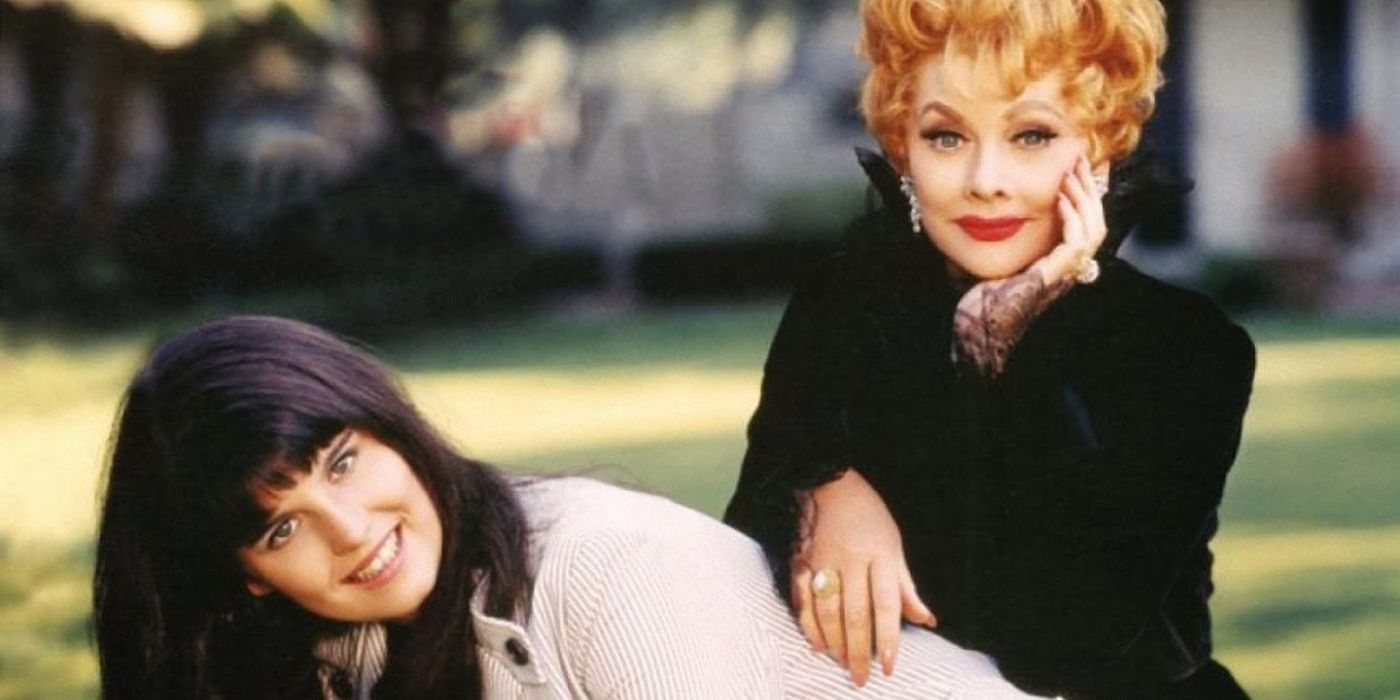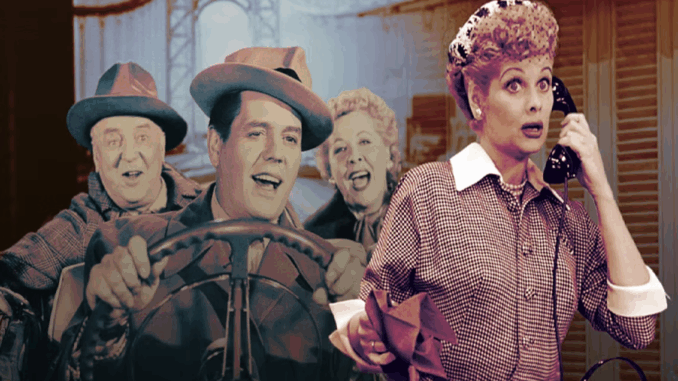
A staple of American pop culture, whose approach to comedy is still referenced and homaged to this day, I Love Lucy ran for an impressive total of six seasons, 180 half-hour episodes, from 1951 to 1957, garnering a stunning 16 million audience (about 60% of households at the time). While the show’s success and resilience are mainly attributed to the charm of Lucille Ball and Desi Arnaz, it also pushed boundaries for its era, both in themes explored and TV production.
As the first scripted TV show in the live audience format, it was a huge step forward for the sitcom, and the show’s influence on syndication and re-run format shaped how channels viewed their programs. Moreover, the show was boundary-breaking in both showing Lucille Ball’s real-life pregnancy and introducing it into the plot (to name one of a few ways the show pushed boundaries), a subject at one time considered not fit for American audiences.
Despite all its accolades and success, many may not be aware that the show’s conclusion felt abrupt for many at the time. The series never really got a proper finale to show Lucy and Rick off, giving them a deserved chance to say farewell. We will examine what went on behind the scenes and why I Love Lucy ended abruptly without a finale.
The Final Episode of I Love Lucy
If anything, the final episode left audiences generally upset, with the abrupt end not suiting what had come before it and not giving the closure many wanted. The fact that this was the final episode was also not told to the cast, so even the cast and crew were not given the satisfaction or closure of ending on a high note. This would cause Lucille Ball to speak out on what happened, and the truth behind the reason I Love Lucy did not have a proper finale soon became a huge talking point.
Why I Love Lucy Did Not Have a Proper Finale
Lucille Ball’s and Desi Arnaz’s relationship began to struggle in popularity, with Arnaz’s weakness for booze and other women creating a constant sense of tension between the two off-set. However, it should be noted that Lucille Ball and Desi Arnaz are still seen as a couple that were madly in love, despite the many ups and downs in their relationship. In addition, though not as big of a contributing factor, William Frawley and Vivien Vance who portrayed Fred and Ethel Mertz, were also known to dislike each other. This was minor, but it was part of the many reasons why the production began to unwind.
You Can’t Keep Lucille Ball Down
Lucille Ball and Desi Arnaz would reunite for The Lucy–Desi Comedy Hour, which ran for 13 episodes (3 seasons) between 1957 and 1960. While not as well received as I Love Lucy, the show still brought back the cast from the show, including William Frawley and Vivien Vance, and Arnaz was able to write a more suitable ending. The final episode, “Lucy Meets the Mustache,” featured a significant kiss between the iconic characters Lucy and Ricky Ricardo, symbolizing the end of their on-screen partnership and their off-screen marriage as Lucille filed for divorce a few days after the episode. The moment offered more closure than the final episode of the legacy of I Love Lucy, and many fans of the series feel it was a bittersweet send-off that the couple deserved.
Where to Watch I Love Lucy
Unfortunately, not all nine seasons of I Love Lucy are available for rent or streaming, primarily due to licensing issues related to the music used in the episodes. Six seasons of I Love Lucy are currently available on Paramount Plus, though this does not include the ninth and final season. The Lucy–Desi Comedy Hour is also unavailable to stream or rent. Those who want to learn more about the legacy of I Love Lucy, Lucy and Desi (directed by Amy Poehler in her documentary directorial debut) is available to stream on Amazon Prime as part of their original programming. For a more dramatic re-telling of the life of Lucille Ball and Desi Arnaz, you can watch Being the Ricardos, also available on Amazon Prime.
